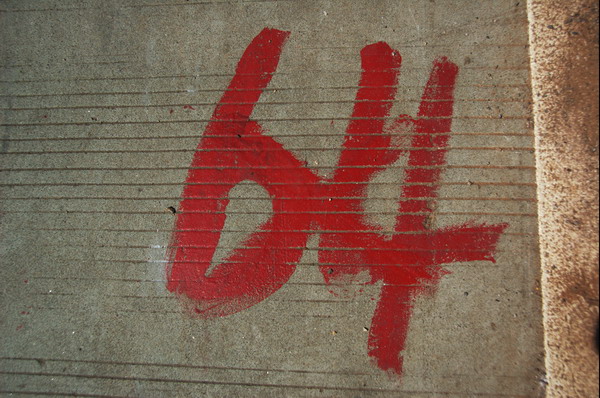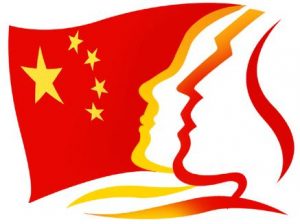Lawyer Peter Scheer has a beef with the Great Firewall in the International Herald Tribune, as well as taking a swipe at foreign law firms practicing in China:
At 225 million users and still growing at double-digit rates, China’s Internet is a business opportunity so grand and irresistible that it can blind normally circumspect people to the moral compromises that cooperation with Chinese government authorities inevitably entails.
I experienced this first-hand when, about a year ago, I made inquiries at the China offices of a number of American law firms to ask for help in comparing results for Internet searches performed inside China – within the “Great Firewall” of government censorship, as it is called – with searches performed from outside.
The law firms demurred, explaining, with commendable candor at least, that they could not risk being observed checking out search terms like “Tiananmen Square” or “Falun Gong.” Mind you, these were the kind of lawyers who spend their careers pushing back against the demands of government authorities.
So seductive are the business opportunities in China that the risk of losing them transforms even hardened litigators into wimps.
I guess somebody had their Wheaties that morning. This doesn’t seem fair. Banned keywords are, after all, illegal. It might be stupid, but its the law. While there doesn’t really seem to be any laws against searching for illegal keywords, the keywords themselves are illegal which makes it that risky shade of gray we all know so well in China. There are things that foreign law firms ought to stand up for in China. Doing a search as a favor to a colleague overseas doesn’t seem worth the risk – these are law firms that believe in a process of engagement. Calling them wimps seems unfair, and dismisses that they’re doing good in China in a different way.
Besides, why should they have to recreate what the Berkman Center already did? They get billed by the hour (ba doom ching). Even better, why not use the Blossom tool and do Google searches through a Tor node located in China? (The Tor page appears to be unblocked in China at the moment)
Web sites based outside China, meanwhile, are subject to blocking by the Great Firewall based not on their content, but on their capacity to create, inside China, large, voluntary online communities that are independent of the government. These include nearly all blogging services, Wikipedia and wiki platforms generally, social networking sites and peer-to-peer technologies of all kinds, including photo-sharing and video-sharing businesses. In other words, the full panoply of Internet technologies.
In general, this is true. China’s filters have struck at overseas Web 2.0 applications in particular. But saying its “the full panoply” is inaccurate. China has now unblocked YouTube again and its being bombarded with Chinese made videos about the Tibet controversy. MySpace.cn has 2 million members, which presumably doesn’t include those who signed up on MySpace.com, which has remained unblocked, though it seems to be hanging on a connection today. Facebook.com is unblocked. Chinese users responded to a flickr block with annoyance and proceeded to route past it. Twitter remains unblocked. And nothing has ever seemed to stop BitTorrent, eMule or other peer-to-peer services. I’ll grant Wikipedia is only newly unblocked, and we’ll see how that goes. Blogspot, livejournal, wordpress.com and it seems now blogs.com have been blocked, and the government certainly takes a less than friendly view on them. But Scheer gives the impression these services are totally cut off, while its more patchy and randomly changes.
But here’s the part where Scheer really blows my mind. After saying Western Internet companies in China should disclose their role in censorship (fair), openly assert their disagreement with government policies (problematic), and move Chinese customer data off shore (Rebecca MacKinnon also recommends this) and if they can’t do that at least warn Chinese customers they are adhering to local laws (I believe the terms of service for Yahoo!, MySpace and the like do just that when they mention “damaging public security, revealing state secrets, subverting state power, damaging national unity,” etc.) Good. Fine. But then he goes on to say:
Finally, where warnings are not possible or go unheeded, companies should force customers to give their real names when using their Web sites. That will force users to think carefully about what they say or do online. Ironically, the barring of anonymity is the surest means of getting users to appreciate the risks of saying what the government doesn’t want to hear.
What? How exactly would you “force customers to give their real names”? Obviously you would need something like the real name registration system the government attempted to place on all web content in 2005. Who else but the Chinese government is going to confirm the name is real? Nobody else has anything like that kind of data. You can’t do a credit record check with ChoicePoint or something. Anyway, the system never happened, and later a voluntary “pledge system” was suggested and mocked. And only 15% of the public seemed to like the idea in the first place. This was a government program that free speech advocates such as RSF were against. Yet Scheer is saying that you should go offshore, but if you can’t do that issue a warning, but if you can’t do that – make them all do what the Chinese government once wanted to do and overseas activists feared?
Am I reading this right? Is he actually saying that overseas Internet companies should deny Chinese citizens the right to anonymity so that they’ll get mad and demand rights? Is he really suggesting that Chinese citizens are completely unaware of the consequences of certain speech, and ought to be forced to learn about it by Yahoo! and Google? Is he saying “stick it to them so they’ll learn the hard way”? Because that’s flabbergasting.







 A word that seems to be cropping quite a bit lately from both
A word that seems to be cropping quite a bit lately from both